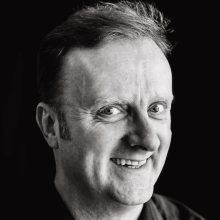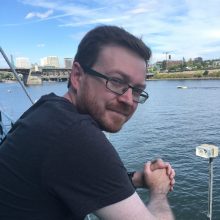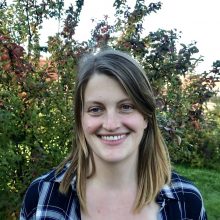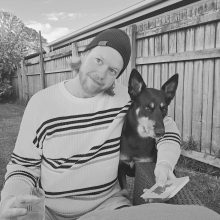The Corn Bride by Mark Stay
Welcome back! How have you changed as a writer since your last authorinterview?
I’m slightly rounder in the tum and my hair is thinner. I blame chocolate Hobnobs.The Big Biscuit lobby is a clear and present danger to all writers.
What lessons have you learned from the publishing industry?
That the only thing you can control are the words on the page. There’s no point fretting over whether or not you’re going to get a big advance and a launch party or posters on the London Underground. Just enjoy the process of writing and you will almost certainly become a better writer. Of course, there’s no guarantee that good writing will lead to big advances or launch parties or posters on the London Underground, but when the dust has settled and you look at the book on the shelf you can at least tell yourself that you put everything on the page.
What is it about your genre that drew you to it?
I sort of slip between genres. I’ve written science fiction, horror, folk horror, fantasy and I pitch the Witches of Woodville series as a cross between Dad’s Army and Bedknobs and Broomsticks. I like anything that has a dash of unreality sprinkled on it. I get enough of the real world in, well, the real world.
That said, I’ve recently co-written both a romcom screenplay and a revenge thriller that have zero fantastical elements in them and they were really fun. And I’m working on something now that could be described as a modern day noir, but it’s also something that I think will appeal to science fiction and fantasy fans. Basically, I love writing stories where the characters are tested, tormented and come out the other side battered and bruised but changed somehow. Is that a genre?
What tools do you favour while writing?
I’m always wary of fetishising writing tools. A bit of flashy software or a special fountain pen isn’t going to make you a good writer. That said, I write in a notebook using a Parker Jotter pen, then type it up into Scrivener. I love Scrivener as it’s great for keeping all my research and the manuscript in one doc. When it comes to edits, I switch to Apple Pages. It’s cleaner than MS Word and doesn’t crash half as much and doesn’t tell you off for swearing. People forget that Word was designed for writing office memos, not eighty-thousand words of a novel. I won’t sully my desktop with it, I tells ya!
For screenwriting, I use Highland 2. Again, it’s simple and clean and doesn’t crash.
But ultimately, anyone could do this job with a notepad and a pencil.
Are you a Seat-of-your-pantser or an Outliner?
For scripts and co-writing projects, we usually have an outline so that we’re all heading in the same direction.
For novels, I’ll noodle and make notes until I have two key elements: the central dramatic argument (the theme posed as a question) and an idea of the ending. Once I have those, I jump in and start having fun.
You asked at the start how I’d changed as a writer: listening to Craig Mazin’s lecture ‘How to Write a Movie’ on the Scriptnotes podcast completely changed the way I write. He clearly lays out how theme and character work together to fuel the story. I’ve never got stuck since. It’s the best 45 minutes you can spend as a writer today and it’s here on Youtube.
What is the least writer thing you do in your life?
Since being made redundant from the day job a few years ago, I’ve gone all in on being a writer. That means that I don’t have much time for non-writery stuff, which strikes me now as a bit sad. But my wife Claire is a gardener and works all day in all weathers to keep the lights on and food on the table, so the idea of me swanning about during the day not writing just wouldn’t be right. And I work most weekends selling my books at comic cons, so I don’t have a huge amount of spare time.
That said, I am partial to Lego. I do love the challenge of a big Lego set, but like I said I rarely get the time (and they aren’t cheap!). But there’s something about studiously following the instructions and not fretting about how it’s going to turn out that’s very non-writery. And it’s great for lowering the blood pressure and should be available on prescription.
Tell us about your journey finding your “voice
This was one of the biggest lessons for me to learn. I grew up loving Douglas Adams, Harry Harrison, Terry Pratchett and I thought that in order to be a successful writer I should write like them. It took me a very long time to realise that I just had to be myself. It’s very liberating and only came about when I started to realise that people were most enjoying the weird bits of my writing that I thought no one else would get.
What are some of your most important literary influences? (This can be as wide-ranging as you like, including various genres and films.)
Douglas Adams taught me that science fiction can be hilarious and smart, Terry Pratchett showed me how fantasy can be wise, funny and have a heart. PG Wodehouse can reveal an entire character in one line, Conan Doyle taught me about twists and reveals, and I learned so much about dialogue from John Sullivan, David Mamet, Harold Pinter, Mike Leigh and Victoria Wood.
What are some of the real world places, cultures or people that inspired your work?
I grew up in a working class family who were all natural-born storytellers. They just never got around to writing any of it down. My mum’s side of the family are from Ireland and would tell me ghost stories that both terrified and inspired me.
Moving to Kent definitely helped the Witches of Woodville series. We’re surrounded by beautiful countryside and farmland and relics of the war. And the village of Woodville is a sort-of ‘greatest hits’ of Kent villages like Chilham, Wickhambreaux and the most haunted village in England, Pluckley.
What’s your favourite scene in the book you are promoting today?
I can’t say too much for fear of spoilers, but there’s a quiet and emotional scene towards the end of The Corn Bride with Faye and Bertie that made the audiobook narrator cry. Twice. Job done!
What’s the most useful advice you could give to an aspiring author?
Firstly, develop your voice. But if you’re starting out, you need to develop a good writing habit. I know a lot of people are down on the ‘write every day’ thing, but if you were learning a musical instrument you would practise your scales everyday and it’s the same with writing. Find twenty minutes in your day where you can shut out the world and just write. Set a timer. Once those twenty minutes are up, then go about your day. But do it every day. We had a thing on the Bestseller Experiment called the 200 Word Challenge and it definitely worked for plenty of writers (including me when I was in a funk).
What non-writing element of your life affects your writing the most?
My family is brilliant at knowing that when the door to the office is shut, then I’m off visiting another world and scribbling furiously. And when I get that far away look in my eyes they realise that I’m probably thinking of a story problem. Without their generosity and understanding, I wouldn’t be the writer I am.
If you could give yourself 10 years ago a piece of advice what would it be?
It would be the voice thing. And I think that’s going to be important advice for the future, too. In a world full of AI slop, it’s going to be crucial to be your true and strange self. Humanity and idiosyncrasy is going to be at a premium.
If you’ve written a series, what is different about writing a series to a standalone?
I’m working on a standalone at the moment and it’s about the one, big turning point in the protagonist’s life, after which nothing will ever be the same again, and those stories are always fun to tell. But I love the slow burn of a series and spending years with those characters and loving them while at the same time tormenting and testing them. It’s a lot like being a parent!
Tell us about the book you’re promoting.
The Corn Bride is the fifth and, for the moment, final book in the Witches of Woodville series set in a little village in Kent in the Second World War. It involves aggressive Morris dancing, ghostly schoolchildren, a possessed vicar, a shootout at a wedding, a Nazi occultist and a talking budgie. What more could a reader want?
Other interviews with Mark Stay
👋 Hi! I run Author Interviews
As a new writer I found myself itching to contribute to a thriving, creative community, so I made Author Interviews and I've met loads of wonderful people in the process. You can buy my debut fantasy RINGLANDER: THE PATH AND THE WAY from Amazon.
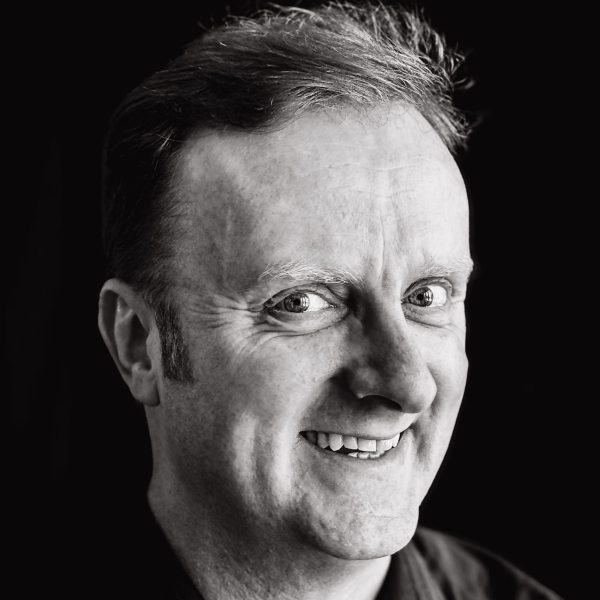
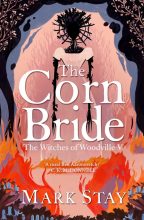
 Audible
Audible